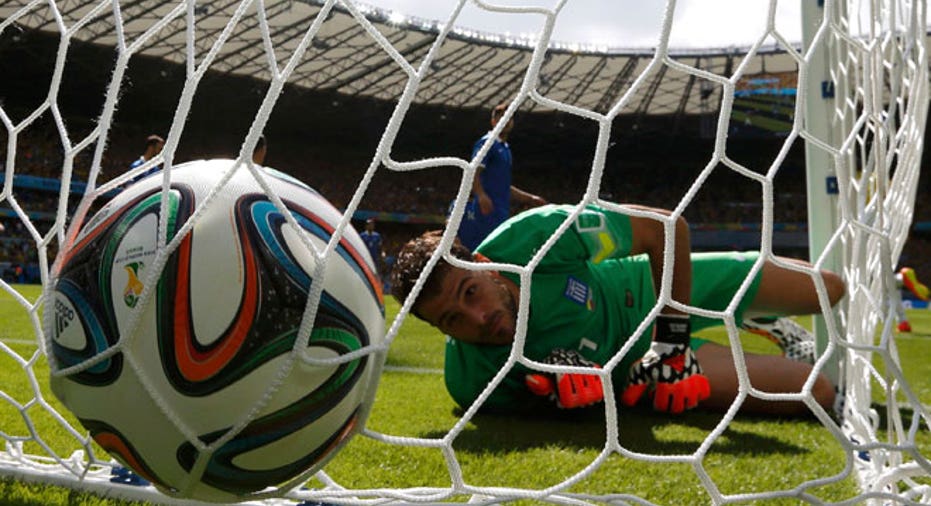Hey, Boss! Don’t Be a Soccer Scrooge!

I’m not the one to snitch on colleagues, but let’s just say a “few” of them veered from their work on Thursday to catch the U.S.-Germany World Cup game. Apparently they weren’t alone. Even on the floor of the New York Stock Exchange, trading volume dramatically slowed around noon ET, when the two countries faced off. It didn’t return to normal levels until the game was complete.
That’s not unusual. I’ve seen this phenomenon play out many times before – and not always for sporting events. Twenty years ago, the entire nation seemingly stopped everything to catch O.J. Simpson in a Ford Bronco on a California highway. If the event is big enough, it’s a safe bet folks will stop what they’re doing to catch it.
The fear, of course, is them catching it…at work. Bosses generally aren’t fond of their workers not doing their work. Distractions cost time and money, after all.
Or do they? Because for the life of me, I have as yet to see any hard data that proves overall worker productivity is materially compromised during such big events. I assume in this week’s U.S.-Germany World Cup showdown, all sorts of business activity slowed down. But did it slow down substantially and affect overall business numbers in the aggregate? Remember it’s just a couple of hours – a sizable chunk of a business day – but one day, in one week, in one month, and ultimately a blip overall in one year.
All I know is that 20 years ago, Big Board trading volume overall finished strongly for the month, despite the O.J. distraction. Business bounce-backs similarly occurred after momentary fixations involving anything from a baseball playoff game to more than a few live car chases having nothing to do with O.J. And while much of the nation similarly stopped what it was doing on February 12, 1999, to hear Bill Clinton apologize to the nation after barely dodging impeachment in the U.S. Senate hours earlier, the speech, as well as the disruption, was brief.
That doesn’t mean bosses should condone their workers rallying around a screen showing a soccer game than a screen showing a spreadsheet. But it does mean maybe those bosses shouldn’t give those workers too much ‘sheet.’ Actually, now and then, they should encourage it. Such rare departures from corporate form actually bring together disparate corporate players. There’s a communal bonding to it; in this soccer game case, an almost patriotic fervor to it.
People laugh, trade stories, and at least in the moment, get jazzed. It’s not so much a break from the drudgery of work, but I suspect it later puts an extra pep in their step returning to that work.
Don’t believe me, believe economic numbers that show such distractions are but blips in the overall scheme of things. The only way I can explain these data is that workers return to their duties more engaged than they otherwise might be, and produce more than they otherwise might have. Put another way, they’re pumped, even if in this case, their team loses. It always helps, of course, when at least in this country, they hear Americans will get to fight another day, so their World Cup still runneth over.
I guess I’m not saying anything profound here, save this: maybe bosses might be wise to give a little slack here. I’m not saying doctors should hold off on removing a gall bladder to catch that goal, but for most businesses, on most days, and in most situations – it’s not the end of the world if they’re allowed to peek.
That doesn’t mean they should be playing solitaire on company time. But it says something for corporate spirit and simple “worker wow” if you bosses let employees play some of the time. After all, a productive worker is a happy worker, even when he’s allowed now and then not to work, at all.



















